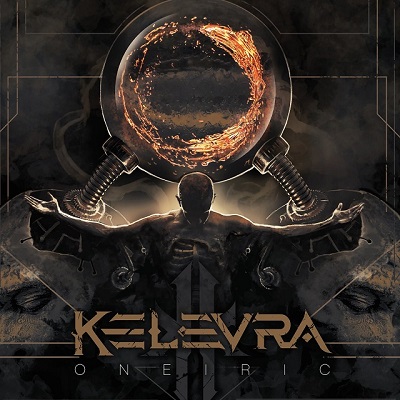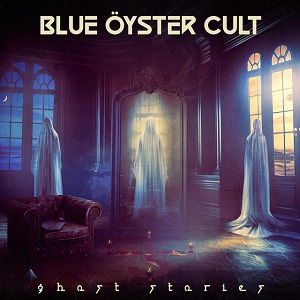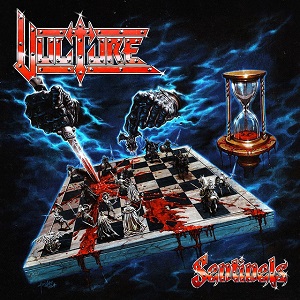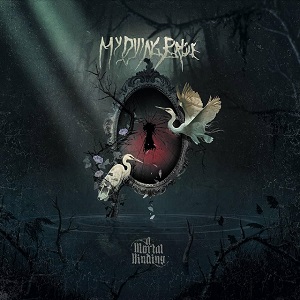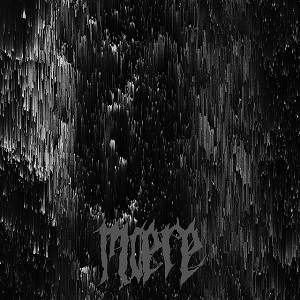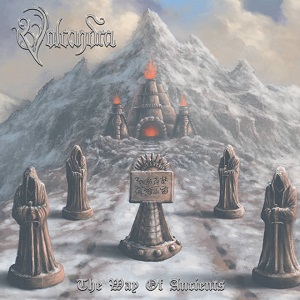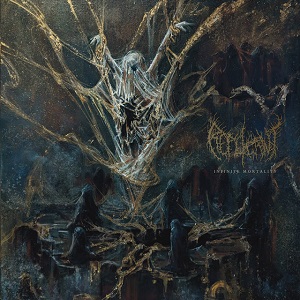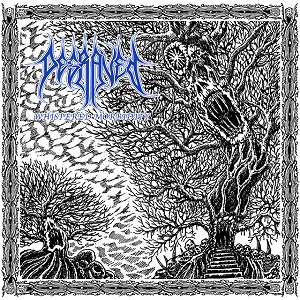SEPULTURA - Ghost In The Machine
January 18, 2017, 7 years ago
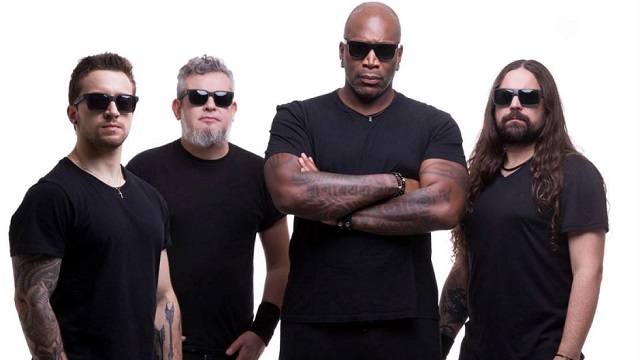
The majority of Sepultura fans, (me included) are some of the most opinionated-yet-passionate fans around.
In fact, maybe sometimes we’re even a pain in the ass when it comes to each new album.
However, Sepultura’s polarized fan base — those who criticize the post-Cavalera lineup and those who accept the current lineup — still looms. And those of the former who haven’t yet given American born Derrick Green a chance after 20 years as the frontman (outlasting Max’s tenure by 10-plus years!), are missing the boat.
Band politics aside, Sepultura is still a thrash metal entity that has survived for 33 years.
Upon first listen to Machine Messiah (released January 13th via Nuclear Blast), the band’s 14 full-length album, you’ll immediately recognize some odd surprises. For instance, from the “un-Sepultura-like” melodic buildup and clean vocals of opener and title track, to the sweeping symphonic elements of several tracks (“Phantom Self,” “Resistant Parasites,” “Sworn Oath”) to the Deep Purple-ish Hammond organ flavor of “Iceberg Dances,” Sepultura throws fans a tasty little curve ball.
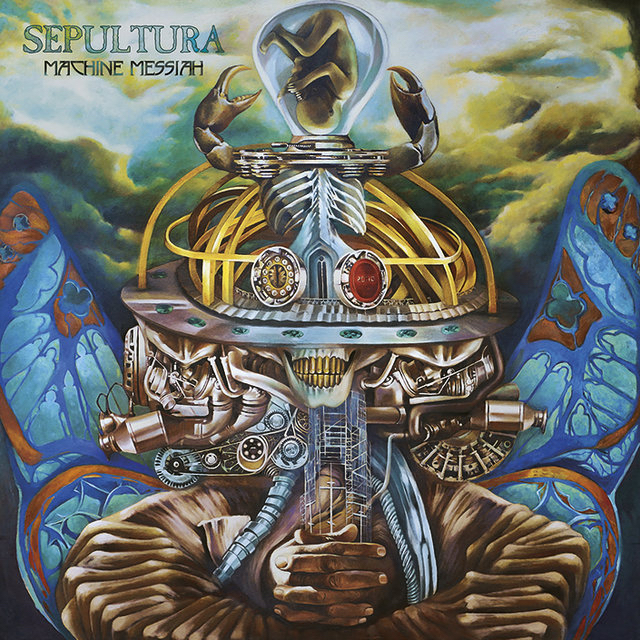
“I see the first track as a big intro, or a big overture,” Kisser said during a Skype chat from his home in São Paulo. “It creates expectations to live that kind of feeling of what’s coming next. We used the abilities of Derrick’s singing for the first time, opening with a very slow, very melodic-yet-intense track.”
It’s the calm before the storm that Kisser is talking about. That creepy opening buildup blends with Green’s vocals so well, which actually takes a similar approach to a previously-recorded track, as Kisser recalls.
“We did a song from the Revolusongs album, where we only recorded covers of bands not from the metal world,” he said. “One of them was Massive Attack and a song called ‘Angel.’ Our version of the song was used in many different movies and series. It had that kind of the same vibe, with it growing on you with a different rhythm. You don’t always have to start with a straight punch. It’s more in a physiological way to start slowly and introduce the idea in a subtle way and leave the imagination open. I guess the intro worked!”
Immediately following the title track is the two-and-a-half minute “I Am the Enemy.” This track is that straight punch in the face Kisser was talking about.
“Coming out of a song like ‘Machine Messiah,’ it’s a very straight forward song,” Kisser said. “(It’s) short and sweet to keep that contrast. We build the album in sequence (in which) every song has a strong identity, strong characteristics and are very clear why they are there. In doing so, we have a lot more possibilities to build the sequence of the songs and to create that kind of storyline intention, which all the (Sepultura) albums have.”

Since Max Cavalera’s acrimonious departure in 1996, Kisser has been steering the Sepultura ship. Overall, Kisser has guided the band well, despite a few naysayers. Sepultura has undoubtably stretched the limits of what the band started out as with this new chapter in its history.
“We are in the best time of our story,” Kisser said. “We have amazing possibilities ahead of us and for people to be locked in the ’90s like that is kind of sad. It shows that, like you said, they’re missing the boat; missing life itself. It’s like a little bit of the robotic concept we’re talking about on the new album. They’re locked in some virtual reality of the past.”
On Machine Messiah’s ten tracks, Sepultura does what Sepultura does best. Although the aforementioned odd surprises do pop up throughout the album, it’s clear that Sepultura isn’t afraid to take risks.
“You have to leave the risk factor always there, otherwise you wouldn’t do anything new and you’ll just be copying yourself,” Kisser explained. “To take risks is art itself. We had to plan to build expectations and to be more musical and to explore our musicianship at the highest level. Also, changing producers (Jens Bogren) and going to a different studio in a different country are factors that are well thought that will influence what you’re going to do. At the same time, you have to leave the free spirit open. It was the right choice to do an album like this with the sound and all the details.”

Although there will inevitably be haters, Kisser can’t be concerned with that shit.
“Express your opinion, you’re entitled to have one,” Kisser agreed. “But I do what I do whether you like it or not. I respect every type of opinion, but of course I don’t agree with them all. A fan is just a fan and we respect them all, and without their support we wouldn’t be here. Of course we have the haters. Nowadays everybody has a hater, and that’s part of everybody’s life.”
It’ll be a busy year for Sepultura, with worldwide tours already planned. Beginning the first week in Feb., Sepultura will be on the road in Europe with headliners Kreator and support from Soilwork and Aborted, which will be followed by a North American support slot with Prong opening for Bay Area thrashers Testament.
Before letting Kisser go, I wanted to know about the band’s early days with the release of its 1987 game-changing album Schizophrenia. Schizophrenia was a very important album in Sepultura’s career, which led to being able to record the all-important Beneath the Remains in 1989.
“It was exciting,” Kisser exclaimed. “I found Maxy, Iggor and Paulo with the same urge, as we say here in Brazil, ‘Bloody Eye.’ We were really keen to win and make it happen. Schizophrenia really opened the door for Sepultura to the world. It was the first album that was bootlegged in Europe and then Roadrunner signed Sepultura. Because of Schizophrenia, we did Beneath the Remains and everything else that happened was because of that album.”
Read BraveWords’ scribe David Perri’s review of Machine Messiah here.

